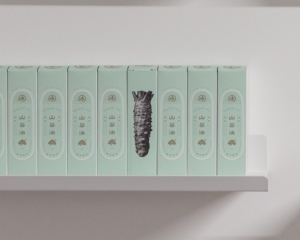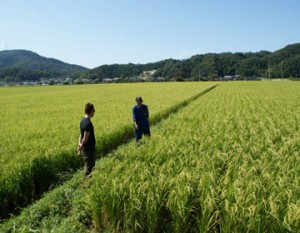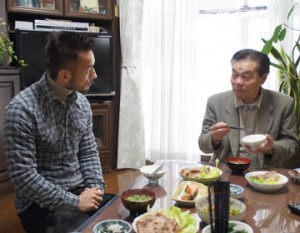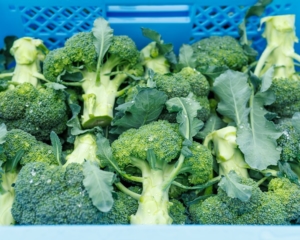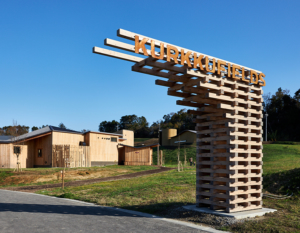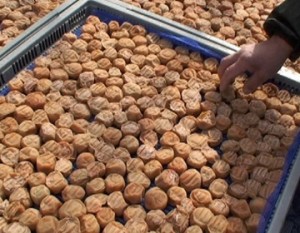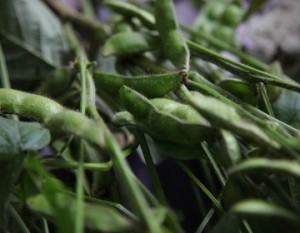Hiroshima Prefecture boasts the largest production of lemons and navel oranges in Japan.
Lemons grown in Setoda-cho, Onomichi, Hiroshima, which consists of two islands in the Seto Inland Sea, Ikuchijima and Takanejima, are one of the most iconic brands of domestically produced lemons.
The lemons are grown with inherited techniques and confidence.
Why Setouchi lemons are so delicious
Nowadays, the Setouchi area is associated with delicious lemons. So why are lemons so delicious in the Setouchi area?
First of all, it has to do with the characteristics of the land. About half of the land in the Setouchi area is steeply sloped and well drained, with an average temperature of 15.6 degrees Celsius and little precipitation. These conditions are favorable for citrus cultivation and produce delicious lemons.
Next is the extraordinary effort of the growers. Satoru Harada, a citrus farmer who has been growing lemons on the island for three generations and is also a certified agricultural advisor who trains new farmers in the region, says
We have grown star-shaped and heart-shaped lemons. As a result of these years of research and efforts, Setoda lemons alone now account for more than 30% of the national market share,” he said.

Safe lemons that can be eaten whole, even the peel
Imported lemons used to be distributed cheaply, but due to problems with chemical fertilizers and pesticides, safe, domestically grown lemons have also been attracting attention. The goal of Mr. Harada and other growers was to produce lemons that were safe and secure and could be eaten right down to the peel.
To achieve this goal, they made efforts to reduce the use of pesticides, and in 2003, they received an award for excellence in the 8th Environmentally Friendly Agriculture Promotion Contest. In 2008, the company also received the “No Worries, No Fears” special cultivation agricultural product award from Hiroshima Prefecture! Hiroshima Brand” special cultivation agricultural product certification from Hiroshima Prefecture in 2008. The certified lemons are shipped as “Setoda Eco Lemons.
Through these steady efforts, the lemon has become widely recognized as a safe and secure lemon that can be eaten down to the peel.
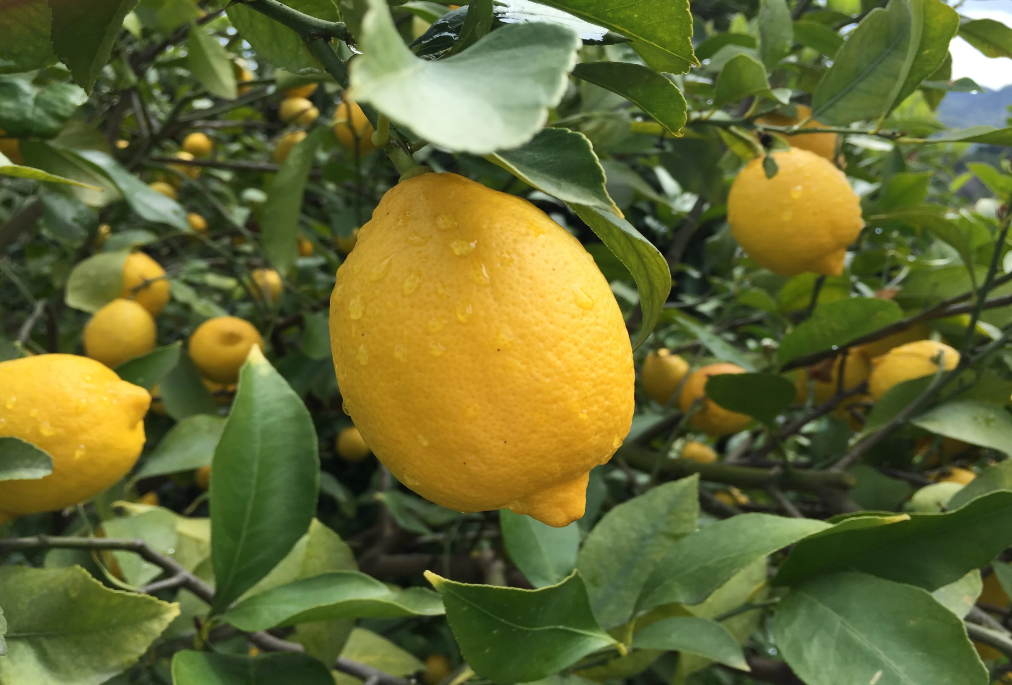

Expanding Processed Setoda Lemon Products
Recently, the Setouchi lemon boom has made a variety of processed products popular.
Lined up on the table in front of us were many processed lemon products. Setoda Town is also active in developing products using Setoda lemons.
Setoda Lemon” is made by marinating two Setoda Town eco lemons in eco lemon juice and honey, ‘Setoda Navel’ is made by marinating navel oranges, and ‘Muroto’ is made by marinating lemons and oranges produced in Setoda Town with domestic citrus juice from Kochi Prefecture, yuzu, kabosu and Konatsu, sea salt from Setouchi, and deep seawater from Muroto, Kochi. The company has developed a series of processed products using Setoda citrus fruits, such as mild and refreshing salted ponzu vinegar made with citrus juices from Kochi Prefecture, yuzu, kabosu, and konatsu. These products are said to be popular not only among tourists but also among locals and through mail order. Because Setoda lemons are delicious all the way down to the peel, they are able to bring out a different flavor from other products when processed. Setoda lemons still have great potential.



The art of growing citrus fruits has been passed down for many years. As a trusted production center, we proudly deliver delicious lemons and navel oranges.




